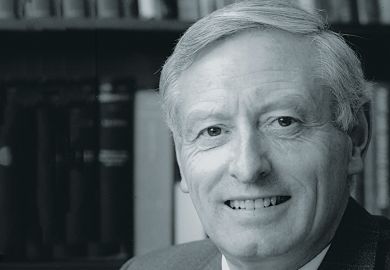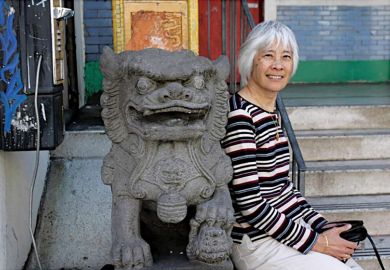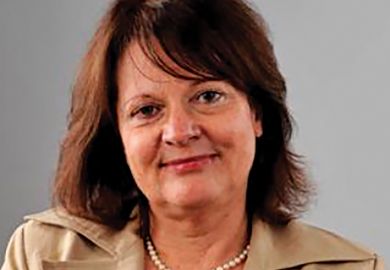A leading historian and chronicler of the Holocaust has died.
Otto Dov Kulka was born on 16 January 1933 in Nový Hrozenkov, in then Czechoslovakia. In 1942, after the country was occupied by the Nazis, he was transported to the Theresienstadt ghetto and then Auschwitz-Birkenau. Although his mother and many other family members were killed in the Holocaust, he and his father survived and returned to Czechoslovakia. In 1949, however, he emigrated to Israel and joined a small kibbutz before deciding to study at the Hebrew University of Jerusalem in 1958.
Despite postgraduate studies at the Johann Wolfgang Goethe in Frankfurt (1966) and a visiting professorship at Harvard University (1984-85), the Hebrew University would be Professor Kulka’s base for his whole career. He joined its department of the history of the Jewish people in 1965, gained a PhD in 1976 and was appointed to the Sol Rosenblum chair of Jewish history in 1988, before retiring and becoming emeritus in 1999.
Much of Professor Kulka’s research was devoted to antisemitism and the Holocaust. The collection he edited with the German historian Eberhard Jäckel, The Jews in the Secret Nazi Reports on Popular Opinion in Germany, 1933-1945 (2010), for example, offered compelling new insights into the attitudes of “ordinary Germans” to racial persecution. All his academic writing, he wrote in Landscapes of the Metropolis of Death (2013), was notable for “an attitude of strict and impersonally remote research”.
Yet, in parallel with this, he spent the decade from 1991 to 2001 recording his own recollections of Auschwitz, “those fragments of memory and imagination that have remained from the world of wondering child of ten to eleven that I had once been”. When these were published in Landscapes, the book was immediately acclaimed as a masterpiece.
Ian Kershaw, the historian and biographer of Hitler, noted that this "extraordinary prize-winning book provides reflections – philosophical and almost poetic in their literary quality – on the traumatic time he spent as a boy in Auschwitz…[Professor Kulka’s] major publications demonstrated the richness of experience of the Jewish community in Germany even as it stood in the gravest peril, and the extent to which Nazi propaganda on Jews succeeded in deepening hatred among the non-Jewish population. Outside the academic profession, however, it will be as the author of the intensely moving Landscapes that Dov Kulka will be chiefly remembered.”
Professor Kulka died on 29 January and is survived by his wife, Chaya, a daughter, three grandchildren and a great-grandson.
Register to continue
Why register?
- Registration is free and only takes a moment
- Once registered, you can read 3 articles a month
- Sign up for our newsletter
Subscribe
Or subscribe for unlimited access to:
- Unlimited access to news, views, insights & reviews
- Digital editions
- Digital access to THE’s university and college rankings analysis
Already registered or a current subscriber?








